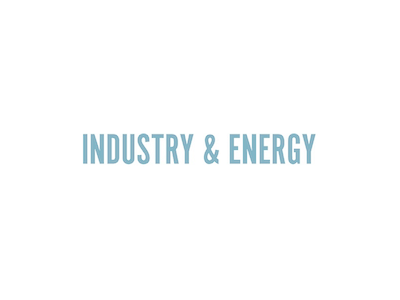Higher ambition and faster action by governments to accelerate improvements in energy efficiency worldwide are both vital and achievable. According to a group of national leaders, ministers, top business executives and prominent energy experts lead by IEA.
With the support of the IEA, the members of the Global Commission for Urgent Action on Energy Efficiency have over the past year explored the most effective ways to achieve stronger global progress in energy efficiency, which brings major benefits such as lower energy bills, large numbers of new jobs and significant reductions in greenhouse gas emissions. Their 10 recommendations highlight the best approaches to designing and implementing policies to unlock the huge advantages that energy efficiency offers to economies and societies around the world.
Sustainable recovery
The Global Commission’s work comes as many governments are increasingly focusing on plans to repair the social and economic damage caused by the Covid-19 crisis. The Commission’s recommendations focus on this new reality and highlight the strong role that energy efficiency can play in bringing about a sustainable recovery.
Established a year ago, the Global Commission is an independent body comprising 23 members from around the world spanning government, industry, research and civil society. Drawing on the IEA’s analysis showing the worrying slowdown of global efficiency progress in recent years, the Global Commission was tasked with examining how to reverse this trend through new and stronger policy action by governments across key sectors of the economy.
The work of the Global Commission complements a major IEA report released last week that outlines a Sustainable Recovery Plan designed to enable governments to simultaneously boost their economies, create millions of jobs and put global greenhouse gas emissions into structural decline. Based on an analysis conducted in collaboration with the International Monetary Fund, the new IEA report shows that energy efficiency is an essential element in achieving these results.
Conference
The Global Commission’s recommendations will be discussed at the IEA’s Fifth Annual Global Conference on Energy Efficiency, which will take place online on 23 June. The conference will hear from 15 ministers from around the world, with a focus on policy actions that can deliver the multiple benefits of energy efficiency as governments respond to the Covid-19 crisis. High-level speakers will bring a range of perspectives from governments, companies and international organisations.
Actions proposed by Global Commission for Urgent Action on Energy Efficiency highlight benefits of efficiency for sustainable recovery plans and will be discussed at major IEA conference tomorrow
10 recommendations
1. Prioritise cross-cutting energy efficiency action for its economic, social and environmental benefits
A stronger, all-of-government policy focus will enhance social and economic development, energy security and resilience, decarbonisation, and rapid job creation and economic stimulus
2. Act to unlock efficiency’s job creation potential
Energy efficiency can quickly deliver job growth and can become a long-term, sustainable employment sector
3. Create greater demand for energy efficiency solutions
Efficiency action will be most rapidly scaled up through a focus on increasing demand for efficient products and services and enabling greater levels of market activity
4. Focus on finance in the wider context of scaling up action
Mobilising finance is an essential element of efficiency action, and policies to do so will be most effective if they are part of a wide, coherent approach to driving market scale
5. Leverage digital innovation to enhance system-wide efficiency
Policymakers can take advantage of digital innovation’s potential to enable smart control, better energy management, and wider energy system optimisation
6. The public sector should lead by example
Governments should lead through investment in public sector efficiency and driving innovation and higer standards throughout its reach
7. Engage all parts of society
Implementation of efficiency action can happen at all levels of society, with cities, businesses, and local communities all playing a particularly important role in its success
8. Leverage behavioural insights for more effective policy
People are at the centre of energy efficiency action, and insights from behavioural science can help design smarter policies
9. Strengthen international collaboration
International collaboration and exchange of best practice allow countries to learn from each other and to harmonise approaches and standards where appropriate
10. Raise global energy efficiency ambition
Governments should be significantly more ambitious in both the short- and long-term when setting their efficiency targets, policies and actions
Source: IEA




